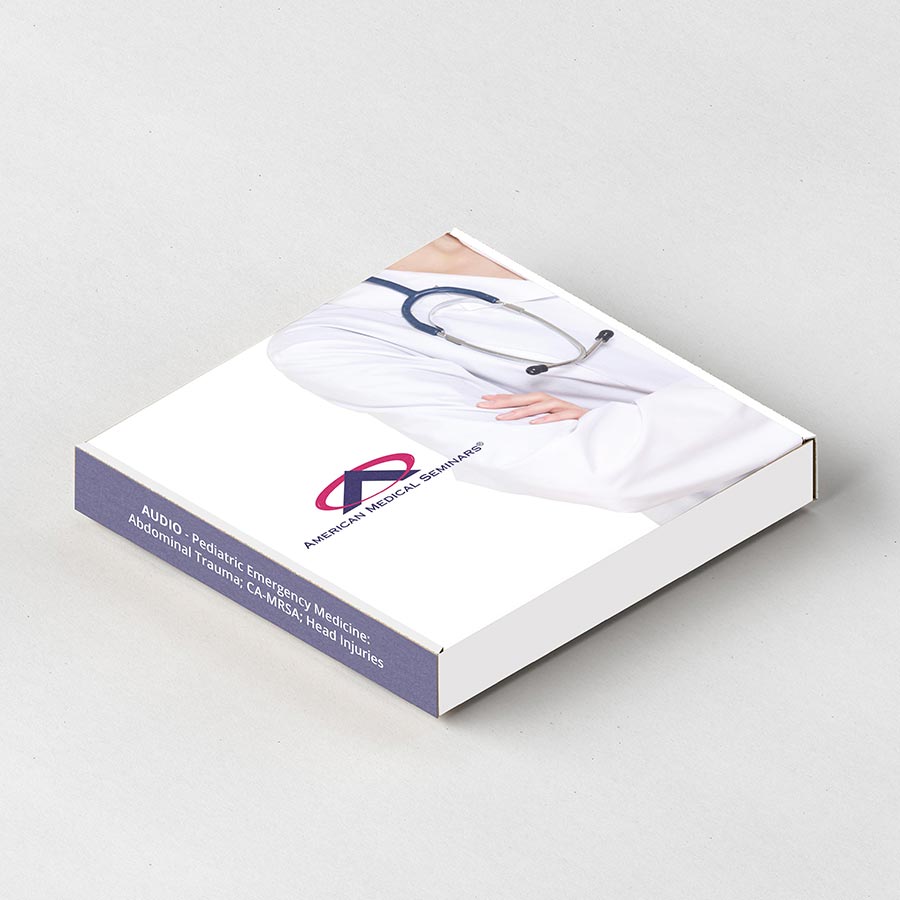Expiration Date: July 1, 2019
Title: Pediatric Emergency Medicine: Abdominal Trauma; CA-MRSA; Head Injuries
Faculty: Rakesh D. Mistry, M.D., M.S. and Jeffrey A. Seiden, M.D., F.A.A.P.
Original Release Date: July 1, 2016 Review Date: July 1, 2017 Expiration Date: July 1, 2019
TOPIC 1: Blunt Abdominal Trauma in Children.
Upon completion of this session, using evidence-based medicine and published guidelines, the participant should be able to: EBM, GL, COMP
- Recognize injury mechanisms and clinical findings that are characteristic of solid organ injury and hollow viscus injury in children.
- Integrate the role of various laboratory and radiologic tests in the diagnosis of solid organ injury and hollow viscus injury in children.
- Develop and employ appropriate management strategies for children with significant intra-abdominal injuries.
- Appraise recent data regarding the utility of focused abdominal sonography in trauma (FAST) in pediatric trauma.
TOPIC 2: Skin and Soft Tissue Infections in the Era of Community-Associated Methicillin Resistant Staphylococcus aureus (CA-MRSA): An Evidence-Based Approach.
Upon completion of this session, the participant should be able to: EBM, GL, COMP
- Detect common skin and soft tissue infections potentially caused by CA-MRSA in children.
- Construct a diagnostic approach to common CA-MRSA infections using the most recent pediatric evidence and national guidelines.
- Use recent evidence to develop appropriate management strategies for CA-MRSA infections.
- Construct an informed approach to antibiotic therapy for skin and soft tissue infections.
TOPIC 3: Head Injuries in the Pediatric Patient.
Upon completion of this session, using evidence-based medicine and guidelines from the 4th International Symposium on Concussion in Sport, the participants should be able to: EBM, GL, COMP
- Describe the pathophysiology and, using evidence-based medicine, develop clinical strategies for the emergency treatment of severe head injury in childhood.
- Apply an evidence-based medicine approach to decisions regarding obtaining a CT scan in children after minor head trauma.
- Recognize the signs and symptoms of concussions in pediatric patients.
- Demonstrate use of currently recommended management approaches in children with concussion.
- The receipt for any incentive-associated purchase will designate the value of the gift card separately from the cost of the learning activity.
- This incentive may have implications on your tax reporting obligations. Any reimbursed amount must be declared as personal income for tax purposes.

